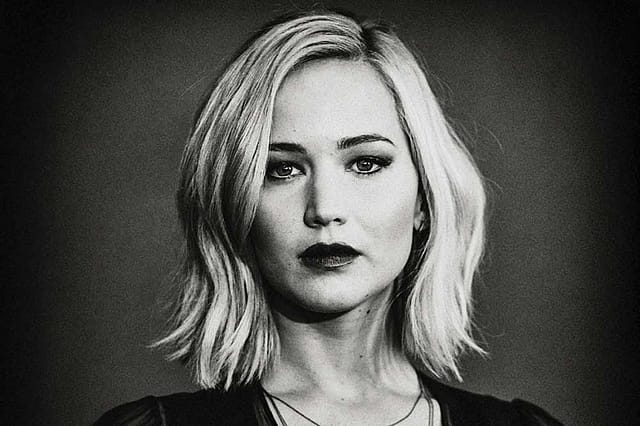Jennifer Lawrence: ‘I feel empowered when I am speaking my mind’

JENNIFER LAWRENCE IS one of the highest paid actresses in the world, best known for her role in The Hunger Games and Silver Lining Playbook for which she won the Academy Award for Best Actress (2013). In the recent Francis Lawrence-directed film Red Sparrow, she plays a ballerina who meets with an accident and is then offered a job as a spy. It is fascinating to see her morph from dancer to spy in this violent spy thriller.
What were some of the physical challenges required for your role in Red Sparrow?
For four months I think I trained in ballet for three hours a day, which was obviously [hard] for me, because I wasn't just going to turn into a prima ballerina. I had to learn to use my body in a different way and also get into the mindset and discipline that these dancers go through. We were filming for over 12 hours a day, so I didn't have much time for training. So we had to get all the training done before, and then when we wrapped all the ballet stuff, I threw myself a party.
Referring to the nudity in the film, the director said you were ready to push yourself further. Were you nervous?
I knew there was no version of doing it a softer way. So, I was scared going in and then actually getting in there and doing the scenes. But I could not have been surrounded with a more supportive group. I have known the director a long time, a cameraman who had worked me with me on The Hunger Games was the cinematographer. They all made me feel comfortable. And I actually felt empowered by it.
Apart from the seductive quality of being a spy, your character had to be aware of what people want. Are you good at knowing what people want?
Openomics 2026: Continuity and Conviction
06 Feb 2026 - Vol 04 | Issue 57
The performance state at its peak
My character Dominika Egorova had to learn tactics and has been forced into a survival mode I could not ever imagine. So, my reading of people is more directed towards things in my life and why they are excited to talk to me—is it because of me? I can read people, but I do it in a different context.
Your character is fearless, but what scares you personally?
Interviews, sitting down one-on-one, because I am just hanging out with someone and it gets printed. For example, my Vanity Fair cover comes out shortly and I will go to sleep with a pit in my stomach every night until it comes out. If it's going to be terrible, just let it be terrible. But it's scary, because you just have a conversation with somebody, and then being misunderstood I think probably is my biggest fear—like accidentally offending somebody, just accidentally being an asshole. That keeps me up at night.
What did you learn about yourself in the process of doing this film?
This movie definitely took me out of my comfort zone and it challenged me in ways I have never asked myself to be challenged before. There was a long period in my life when I really didn't want to be seen sexually and I didn't want anyone to see my flesh and there were certain things that made me uncomfortable. But if I wanted to tell this story, then I had to get over that fear and I felt empowered by it.
When else do you feel empowered?
I feel most powerful when I'm being disciplined and when I am working out, and also when I am speaking my mind.
Talking of speaking your mind, what would you like to see change in the film industry?
The things that I want to change extend much further than the industry. I would like for there to be equal pay for everyone for the same amount of work, and I would like corruption to be not legal in America. There are many things that I want to change. Hollywood is just the beginning.
